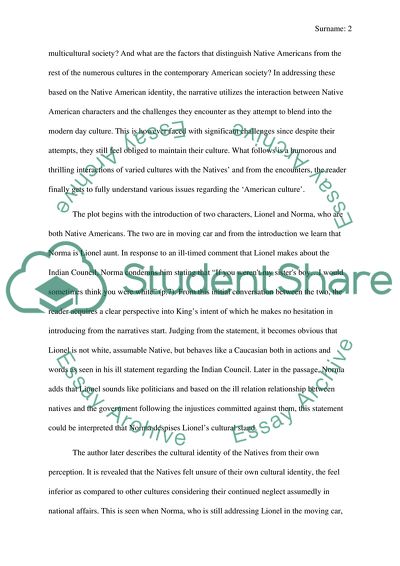Cite this document
(The Authenticity of Cultural Identity in Green Grass Running Water by Thomas King Book Report/Review Example | Topics and Well Written Essays - 1250 words, n.d.)
The Authenticity of Cultural Identity in Green Grass Running Water by Thomas King Book Report/Review Example | Topics and Well Written Essays - 1250 words. https://studentshare.org/english/1824063-either-song-of-solomon-green-grass-running-water-and-native-speaker
The Authenticity of Cultural Identity in Green Grass Running Water by Thomas King Book Report/Review Example | Topics and Well Written Essays - 1250 words. https://studentshare.org/english/1824063-either-song-of-solomon-green-grass-running-water-and-native-speaker
(The Authenticity of Cultural Identity in Green Grass Running Water by Thomas King Book Report/Review Example | Topics and Well Written Essays - 1250 Words)
The Authenticity of Cultural Identity in Green Grass Running Water by Thomas King Book Report/Review Example | Topics and Well Written Essays - 1250 Words. https://studentshare.org/english/1824063-either-song-of-solomon-green-grass-running-water-and-native-speaker.
The Authenticity of Cultural Identity in Green Grass Running Water by Thomas King Book Report/Review Example | Topics and Well Written Essays - 1250 Words. https://studentshare.org/english/1824063-either-song-of-solomon-green-grass-running-water-and-native-speaker.
“The Authenticity of Cultural Identity in Green Grass Running Water by Thomas King Book Report/Review Example | Topics and Well Written Essays - 1250 Words”. https://studentshare.org/english/1824063-either-song-of-solomon-green-grass-running-water-and-native-speaker.


